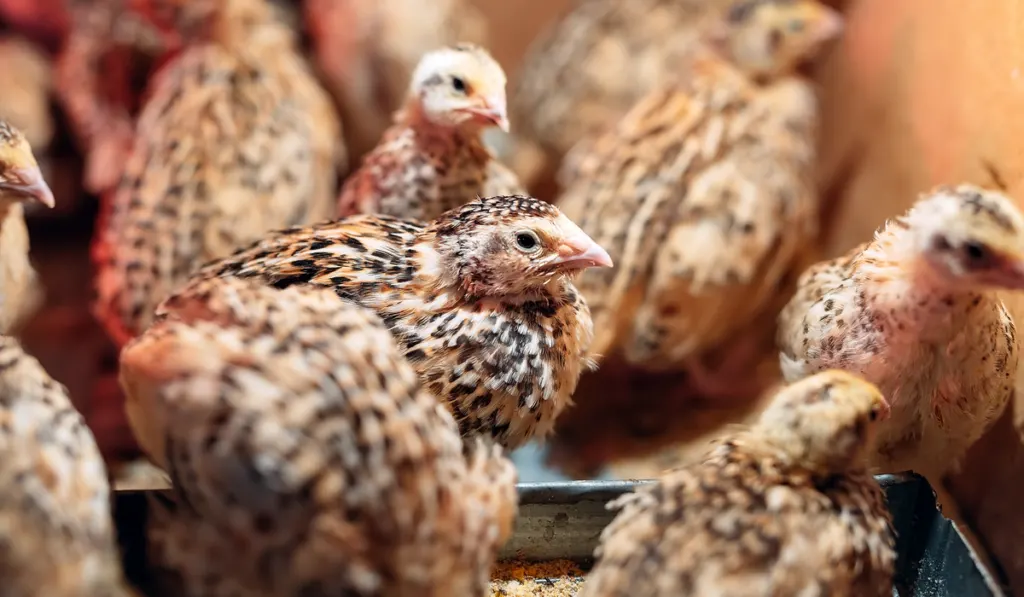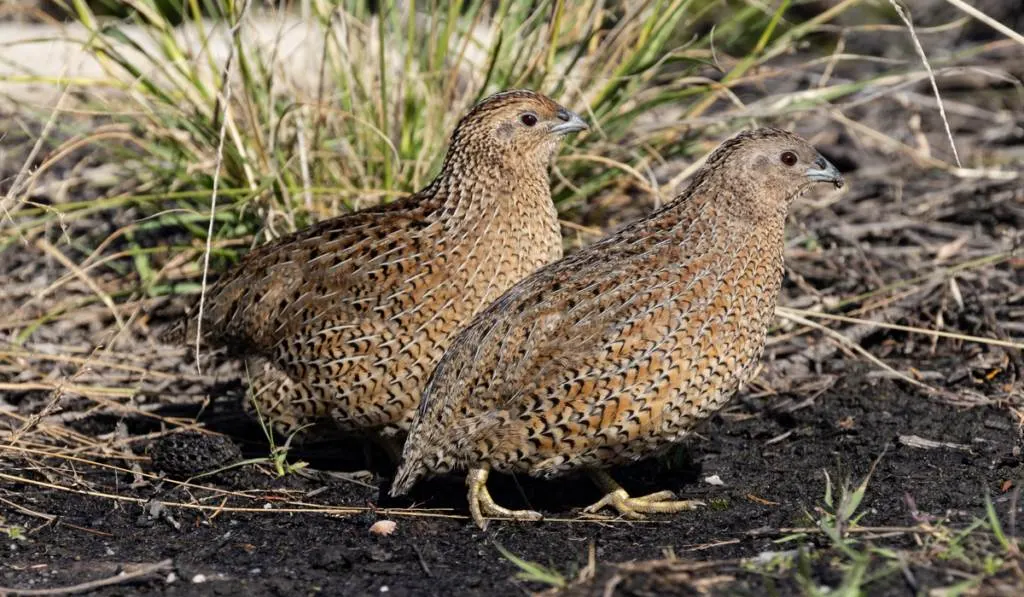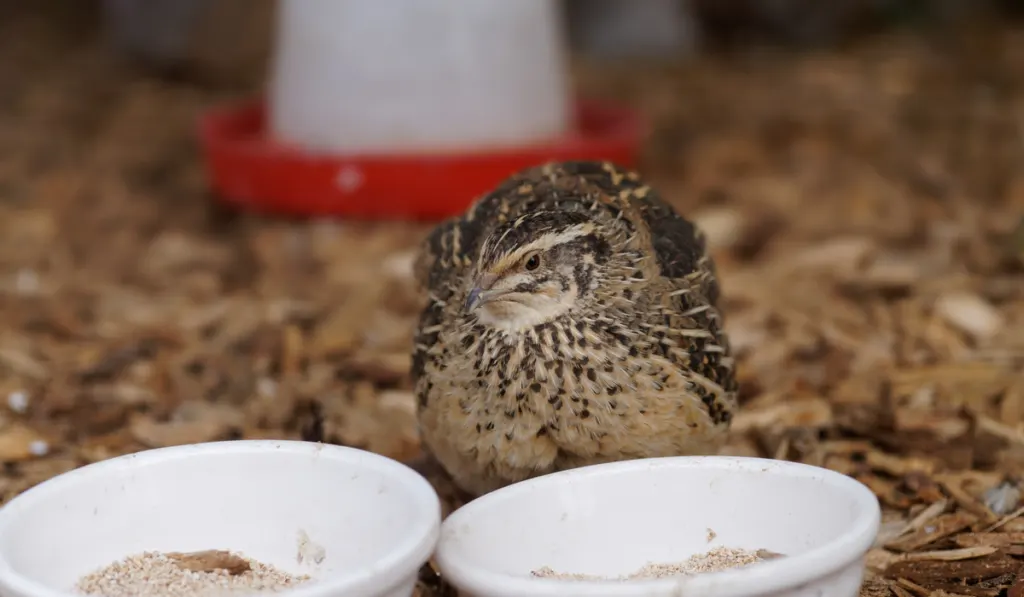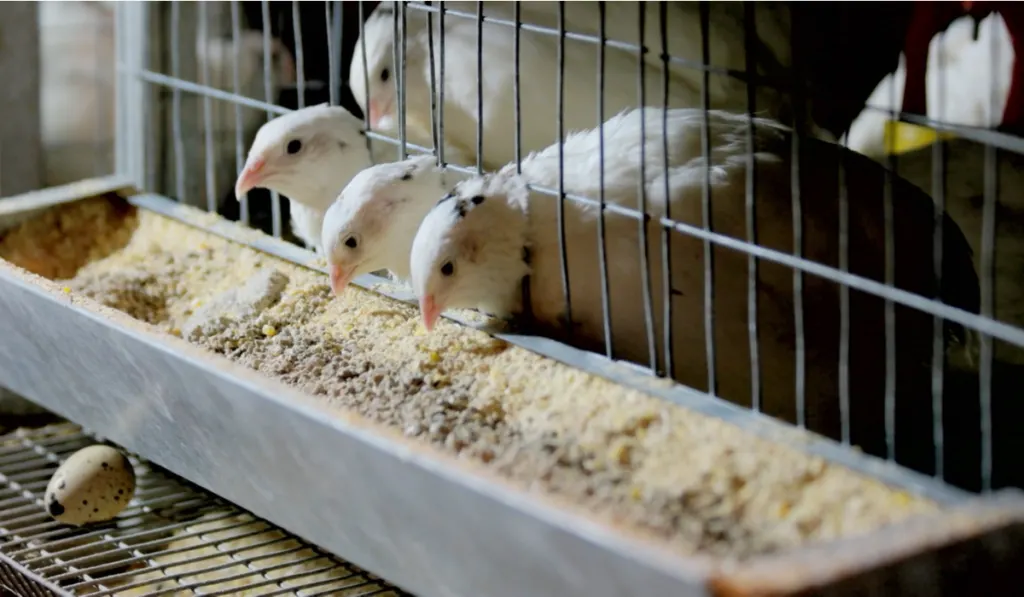Quails are popular backyard birds that produce plenty of eggs. If you’re considering getting quails, it’s important to know if quails are noisy because you don’t want to be up all night or bother your neighbors.
Quails are not particularly noisy, but they are also not completely silent. Due to the fact that quails are small game birds, the noise they make is often soft noises that blend in with everyday birds. During breeding seasons, male quails will announce their availability and can call for a large part of the night, while female quails are generally quieter.
The noises quails emit are dependent on various factors such as whether they are unhappy or in breeding seasons. Before getting quails it’s important that you understand the difference between male and female quails and the best way to provide a healthy living environment for them.

Table of Contents
Male quails vs. female quails
Here are a few of the differences between male quails and female quails.
Male quails
While male quails do crow, it is hardly comparable to the noise emitted when roosters crow. Male quails generally have a gentle, soft crow which they use to get the attention of female quails.
Male quail’s crow resembles that of a wild songbird. These sounds are generally quite pleasant and are unlikely to pose a nuisance to you or your neighbors. Male quails also make chirping and tilling noises, but these too are not excessive.
Female quails
Female quails are generally calm, quiet birds who have a good temperament and do not crow. Female quails do make a chirruping sound that resembles that of a cricket, however, these sounds can barely be heard from a distance.
However, female quails will emit loud sounds if they are in distress as a result of separation from companions, being endangered by potential predators, or being unhappy about something.
Nonetheless, these sounds are neither piercing nor lingering and are generally a soft cluck.
Additionally, despite being prolific egg layers, female quails do not get fussy or noisy while laying eggs.
Should you keep both male and female quails?
Here are some things to consider when determining whether to keep both male and female quails.
Breeding
If you keep a flock of both male and female quails, breeding will certainly ensue. Generally, you will only need one rooster for every four to six hens.
Hatching eggs will provide you with more quails and can also offer quails as a source of meat.

Source of eggs
If you intend to keep quails as a source of protein-packed eggs, then you do not need a rooster and will simply require a group of hens.
Having only hens without a rooster will still lead to lens laying eggs at the same rate, provided they have enough space per bird.
How to decrease the noises made by quails?
Cover the quail cage
It is recommended that you cover the quail cage at night so that no light can shine into the cage. Covering the cage creates complete darkness, which will help your quails keep quiet as roosters tend to stay quiet when in the dark.
Minimize the rooster to hen ratio
Roosters tend to get very territorial. Often, male quails may crow to assert dominance or claim their territory. Having multiple male quails in the flock means higher noise levels.
Keeping one male for every four to six hens will decrease the noise.
Avoid separating male and female quails
Once male quails reach sexual maturity, they will call females for mating. If male quails are separated from female quails, this will result in an increase in mating calls.
However, if you keep a male quail with female quails in the suggested 1:4/1:6 ratio, this will decrease their need to emit mating calls frequently.

Tips on how to care for quails
Here are some guidelines to help you provide a healthy environment for your quails.
Housing
Quails are relatively small birds that require less space than other poultry birds. Your quail coop should provide at least one square foot of space per quail; however the more space, the better.
It is not necessary for quails to be kept with a run, provided their diet includes some greens or that they have access to some grass. However, it is essential that the quail coop has a property ventilation system as quail droppings produce high ammonia.
Rabbit hutches are convenient housing options for quails. Rabbit hutches are ideal because they provide adequate ventilation while offering quails a good place to hide to lay their eggs. They are also particularly useful as they are large enough to house approximately half a dozen quail.
However, if you are not able to make use of rabbit hutches, you can also purchase a ready-made quail cage online or build one yourself.
Habitat bedding
It is important that you provide special care for your quails during summer and winter, particularly in winter when they will need adequate bedding.
You can use newspaper pellets, grass pellets, pine shavings, sand, fir wood chips, or non-skid kitchen draw liners as habitat bedding for your quails.
It will also be valuable to provide your quails with some straw/hay to make their nests. Providing them with straw/hay will encourage them to lay eggs.
Protection from predators
It is essential that the quail coop is built safely and securely to prevent predators from being able to snatch up your quails.
When putting preventative measures in place, try to think like a predator and consider any possible predator and how they might access your quails.
Avoid using chicken wire on your quails’ cage as it can be torn or chewed apart, and owls and hawks can dive through it. Ideally, you should use hardwire cloth to keep out unwanted critters.
If you are making use of a rabbit hutch that you keep outside, ensure that you cover your hutch with hardwire cloth.
If your cage or rabbit hutch has a wire bottom, you will have to use a catch pan or some kind of barrier to prevent critters from being able to grab your quail’s toes.
If you keep your quails in cages or pens made of wire, it is important to place a piece of plywood in the back corner of their cage so that they can rest their feet, as the wire can be hard on their tiny feet.
Caring for quails in cold weather
Quails cannot tolerate being wet and can die if exposed to extreme wind. During winter months or on cold days, ensure that your quails are in a shed or garage.
If you keep your quails in a hutch-style enclosure, be sure to use a tarp to cover all areas that wind, snow or rain could enter.

Essential equipment needed when caring for quails
Here are the essential things you will need to provide a good environment for your quails.
Water container
Quails require clean, fresh water. Due to the fact that quails are small birds, they only need small water containers. Try to avoid big, deep water containers as these put the quails at risk of drowning.
Sand tub
Having a dust bath is essential for quails. Quails generally enjoy dust bathing every day. The sand used for dust bathing is highly effective in preventing pesky parasites such as mites.
Hiding spots
Quails love hiding spots. Purchasing a few large hamster huts and placing them in your quails’ cage will allow your quails to hide in spots that they will love while allowing you to know where they are at all times.
Plants
Quails are curious birds that enjoy different types of plants in their habitat. Adding some potted plants to your quails’ housing will entertain your quails and make them very happy.
Conclusion
Quails are not excessively noisy birds, but do emit noise occasionally. Quails are relatively easy to maintain and can be quite pleasant to keep.
Following the guidelines provided will allow you to create a healthy environment for your quails while minimizing the noise you and your neighbors may experience from their crowing.
Resources
- https://www.facebook.com/103090531559075/posts/are-quails-noisy-could-they-annoy-my-neighborsthis-point-alone-my-friends-is-why/117704016764393/
- https://farmingmybackyard.com/quail-dreams/
- https://www.roysfarm.com/caring-for-quail/
- https://poultryparade.com/how-loud-are-quails/
- https://www.backyardchickens.com/articles/housing-and-feeding-your-quail.67371/
